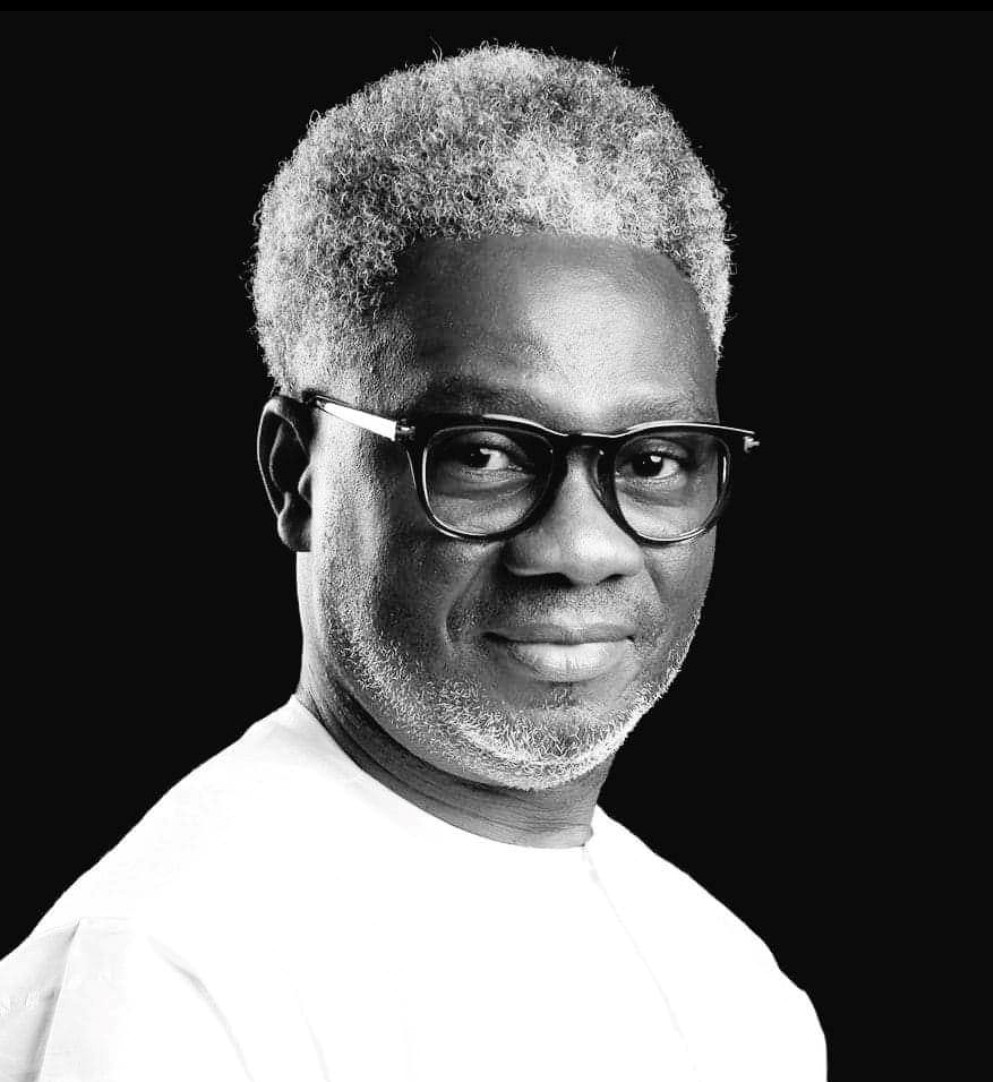Distinguished Ladies and Gentlemen
Welcome to the 2020 National Information Technology Reporters Association (NITRA) Virtual Innovative Tech Webinar. I feel honored to be invited as a keynote speaker at this webinar, which is being attended by experts in the field of storytelling.
I must commend the members of NITRA from across the country for their continuous coverage and reportage of the Commission’s activities. This innovative Tech Forum is another avenue for us to intimate your members and the general public about the NCC’s plans for an economic reboot following disruptions caused by the global Covid-19 pandemic.
I am indeed delighted to be in the midst of ladies and gentlemen who possess the skills for reporting, interpreting and translating our activities into a language that our stakeholders appreciate. More importantly, your role has been critical in informing the public about the various policies implemented by the Commission that subsequently prepared the industry for such an unpredictable pandemic.
I will be speaking on the topic: “Multi-Stakeholder Approach to National Recovery Post-Pandemic”, and there is no better time than now to talk about NCC’s preparedness in addressing the prevailing situation.
The first human cases of COVID-19 were initially reported in Wuhan City, China, in December 2019, and subsequently the Nigerian Government through the Federal Ministry of Health confirmed its first positive case of COVID-19 in Lagos on February 27, 2020.
The Coronavirus pandemic continues to ravage global economies like a wild bush fire, incapacitating local businesses, upsetting the workforce and rendering governments numb as the search for a long-term credible solution continues.
The pandemic has had widespread impact across different countries in varying degrees, exposing the frailties of even the most advanced nations. I must emphasize that Africa, and Nigeria in particular, is really lucky to have escaped the devastation and loss of human lives that have been recorded in developed countries like China, Spain, UK, Italy and even the United States as a result of the pandemic.
I would like to share some perspectives with you on my Strategic Vision Plan (The 8-point agenda) on assumption of office as the Chief Executive/CEO in 2015, was the beginning of our roadmap into preparing Nigeria’s ICT industry for turbulent times and mitigating the adverse effects of any unforeseen developments on the Nigerian economy. We did so, mindful of the role that that the telecommunications sector plays in the development of our economy, and since then we have guided our regulatory efforts to ensure the sustained growth of the sector.
It became imperative for the Commission to introduce drastic measures aimed at providing proper regulatory framework for the industry and also to ensure that Nigerian subscribers receive value for money. We set out to license Infrastructure companies (INFRACOs) with the sole purpose of bridging these existing gaps.
In line with our determination to drive broadband access, we have six (6) licensed INFRACOs, with one in each geo-political zone of the country. Lagos State receives special recognition and possesses its own license because of its commercial centrality to the country. The seventh license for the North-Central region is being processed.
The NCC is in the process of executing the counterpart Funding Agreements with licensed INFRACOs to facilitate increase in fibre deployment around the country to enhance the digital transformation agenda of the Federal Government. These timely measures have been very instrumental to the survival of SMEs that have had to ride on the backbone of Telecoms infrastructure in order to survive the pandemic.
As a fall out of the pandemic many of us have been forced to work from home; government services have moved to online portals; our kids now attend virtual classes; lectures and conferences are now virtual; e-commerce has seen a significant boom globally; online payment for goods and services have now increased threefold; logistics and delivery businesses have seen huge surge in demand for their services. All of the above require reliable means of connectivity and the NCC has continued to work vigorously with industry partners and stakeholders in ensuring that the nation’s ICT infrastructure is able to meet increasing demand for connectivity.
Achieving rapid connectivity means that we must engage with stakeholders to facilitate infrastructure deployment in the sector. To this end, the Commission has intensified its engagement, collectively with Nigerian Governors’ Forum (NGF) and individually with state governors to push the National Economic Council’s resolutions on multiple taxation, multiple regulations and minimum uniform Right of Way (RoW) charges, as well as address other issues impeding telecoms infrastructure deployment in some states.
Furthermore, we are working with the Nigeria Industrial Policy and Competitiveness Advisory Council (critical Infrastructure Sub-Committee) under the auspices of the Vice President on various initiatives towards identifying and implementing initiatives aimed at improving broadband penetration in the country.
As important as all these are, the safety of our cyberspace remains critical as businesses, governments and individuals rely more intensely on ICT for their day-to-day activities following the pandemic. The re-direction of human traffic to online portals for major transactions as a result of social distancing also meant that cybercriminals have a larger audience and a much bigger playground to unleash malicious attacks.
In the post-pandemic era, cyber threats are likely to become the most effective way to attack an organization or a country, and the trends indicate that cyber criminals are finding even more sophisticated ways of carrying out their nefarious activities. It is instructive to note that NCC adheres strictly with ITU guidelines for the global telecoms industry and has been actively in support of initiatives to propagate a safe online community.
The NCC, CBN, major financial institutions and Security Agencies have been working diligently at ensuring that Nigeria’s ICT space is safe and secure, particularly as the economy migrates to significant online and electronic financial transactions.
The NCC is responding to the challenge of new financial technologies and electronic innovations in the financial systems riding on telecommunications networks as the nation’s economy seeks to reboot post pandemic. These innovations are driven by the availability of a robust communications infrastructure made possible by the Commission’s continuous quest for investment in the sector.
In this regard, collaborative partnership between the NCC and the CBN has been very effective, leading to the emergence of various brands of electronic transaction models which have totally reformed banking in Nigeria making it possible for instant cash transfers which have cut out waiting times at banking halls and simplified online transactions.
Between 2015 and 2020, much has been done to put Nigeria on the global map of nations that are electronically driven while delivering financial intermediation. Together with our stakeholders from the banking sector, the NCC is actively involved in the application of various electronic portals that continue to drive transactions off banking floor and onto handheld devices or personal computers.
The Commission’s interventions have continued to lift the Nigerian economy and create hope for financial inclusion based on the seamless implementation of the Commissions Strategic Vision Plan.
It is pertinent to note that NCCs Emergency Communications Centers (ECC) have been crucial in the Federal Government’s fight against the COVID-19 pandemic, with over 1,209 COVID-19 related calls made between March and June 2020 from the 19 ECCs across the country. This pro-active step by the Commission to introduce ECCs across the nation was borne out of the need to safeguard all Nigerians irrespective of their geographical locations.
We hope to reap the rewards of the SVP in the coming years and provide Nigerians the comfort of new innovations and new ways of living. It is a future in which Broadband penetration would be ubiquitous, QoS will be assured and available spectrum would be optimized with full benefits. Moreover, there would be more investment opportunities in the industry, greater strategic collaborations and partnerships, enhanced consumer protection and empowerment, as well as an environment of fair competition and inclusive growth.
The next thing I want to talk about is 5G technology. We are all aware of the controversies surrounding COVID-19 and 5G technology. It is normal for the emergence of new technologies to be followed by such disagreements and the debate is mostly useful. However, and more importantly, we at the Commission are inevitably committed to examining the pros and cons.
The socio-economic benefits of the expansion in telecommunications capabilities embarked upon by the Commission would be of immense benefit to the country, especially with the roll out of the 5G technology, which currently is being test run in about 40 countries. This will be a significant upgrade for networks and will be the backbone for the ICT industry post-pandemic recovery.
According to the ITU, 5G technology is expected to connect people, things, data, applications, transport systems and cities in smart networked communications environments. 5G is meant to seamlessly connect a massive number of embedded sensors in virtually everything through the ability to scale down in data rates, power, and mobility – providing extremely lean and low-cost connectivity solutions.
The Commission is vigorously working to establish a policy for 5G with multi-sector Stakeholders, including the Federal Ministry of Communications and Digital Economy, Nigerian Society of Engineers (NSE), Nigerian Medical Association (NMA), The Academia, Office of the National Security Adviser (ONSA), Association of Licensed Telecommunications Operators of Nigeria (ALTON), Association of Telecommunications Companies of Nigeria (ATCON), Industry Consultative Advisory Forum (ICAF) and a host of others.
Our goal is that when the Federal Government is able to establish a policy that will drive 5G, all the benefits of 5G will be properly harnessed by Nigerians. The Commission is also working to ensure the safety of 5G networks in Nigeria by having multi-stakeholder approach in environmental impact analysis on the use of 5G and the Electromagnetic Fields (EMF) impact on humans in Nigeria. Once this is done, Nigerians can safely utilize 5G and reap all the economic, human and material benefits of 5G.
The economic benefits to 5G to Nigeria post corona virus pandemic will be huge, especially as almost all businesses and activities of government are migrating and offering their services online. 5G will enable a new kind of network for Nigerians designed to connect virtually everyone and everything together including machines, objects, and devices. It will usher in the era of Internet of Things and faster innovation in Artificial Intelligence applications.
Nigeria’s vibrant youth population stands to benefit immensely from the deployment of 5G as it will offer technopreneurs, technology enthusiasts, SMEs and Tech-startups the platform to expand and network with other global players on a scale that has never been witnessed before.
With high speeds, superior reliability and negligible latency, 5G will expand the mobile ecosystem into new realms. 5G promises to impact every industry, creating safer transporting systems, improving access to healthcare for our rural populace, increasing output from the agriculture sector, and digitized logistics among others.
According to a landmark economy study conducted by QUALCOMM, 5G will affect the global economy and drive growth exponentially. 5G’s full economic effect will likely be realized across the globe by 2035 – supporting a wide range of industries and potentially enabling up to $13.2 Trillion worth of goods and services. This impact is much greater than previous network generations.
5G promises to provide increased speed and bandwidth as well as providing deeper coverage to reach people in rural or challenging locations. In addition, 5G will provide strong security for the various sectors of government and private organizations.
Due to its sheer scale and scope, the ITU predicts 5G will accelerate the achievement of all 17 Sustainable Development Goals (SDG’s) from affordable and clean energy to zero hunger.
Ladies and Gentlemen, I am delighted to share all this information with our stakeholders from NITRA, and want to re-assure you that we are passionate partners in the journey to reposition Nigeria’s telecom industry. This symbiotic relationship between the Commission and NITRA must be sustained in order for Nigeria to come out stronger from the Covid-19 global pandemic.
The socio-economic benefits of the expansion in telecommunications capabilities embarked upon by the Commission would be of immense benefit to the country, especially with the roll out of the 5G technology, which currently is being test run in about 40 countries. This will be a significant upgrade for networks and will be the backbone for the ICT industry post-pandemic recovery.


















